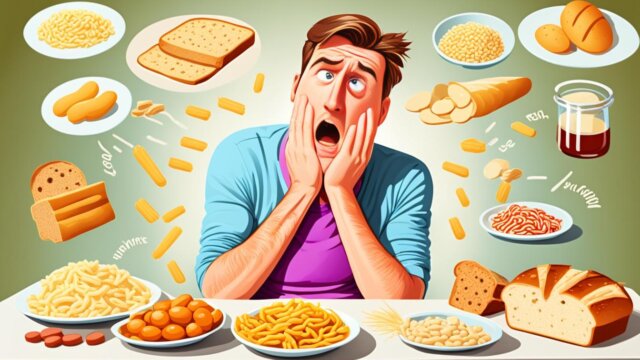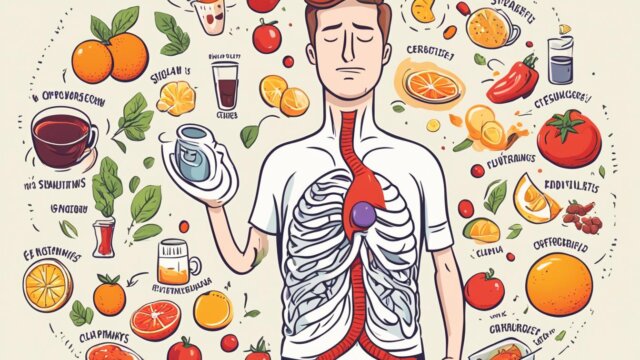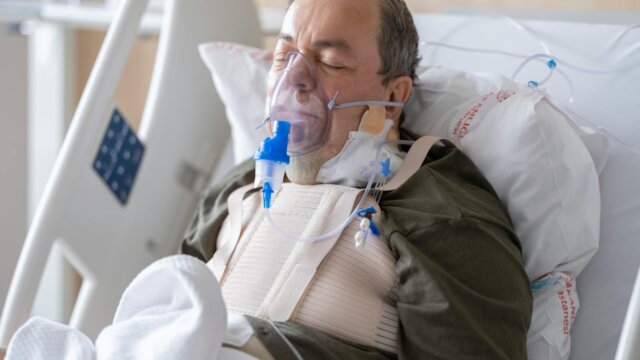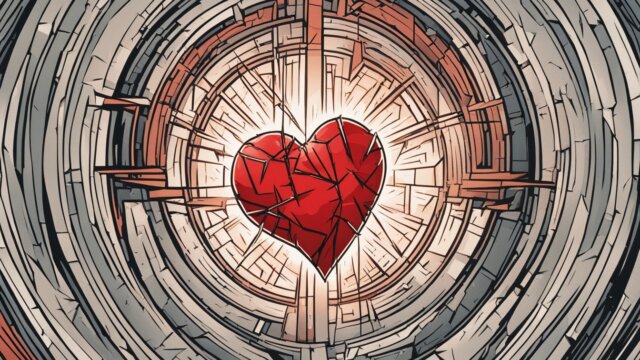FTC disclaimer: This post may contains affiliate links and we will be compensated if you click on a link and make a purchase.
Up to 35% of teens say they feel tired most days of the week. Also, over 20% of people seeing family doctors feel the same. Fatigue is a big problem that affects how you live your life. It’s important to know what causes it, what it feels like, and how to fight it.
Fatigue is more than just being sleepy. It’s a deep feeling of tiredness that stops you from doing everyday tasks. If you feel this way for more than six months, it’s called chronic fatigue. This kind of fatigue can really change your life, making it hard to do things you used to enjoy.
Figuring out why you’re tired is key to getting better. Things like your lifestyle, health, and mental state can make you feel tired. If you’ve been tired for over six months with no clear reason, you might have chronic fatigue syndrome (CFS).
Key Takeaways
- Fatigue is a complex issue that can significantly impact daily life and quality of life.
- Chronic fatigue is defined as feelings of exhaustion or lack of energy lasting six months or more.
- Identifying the underlying causes of fatigue, such as lifestyle factors, physical health conditions, or mental health issues, is crucial for effective treatment.
- A diagnosis of chronic fatigue syndrome (CFS) may be made if the fatigue has no known cause and has lasted for at least six months.
- Effective management of fatigue often involves a combination of lifestyle changes, addressing underlying health conditions, and seeking professional medical care.
Understanding Fatigue
Fatigue is a common and complex condition. It’s not just feeling sleepy or tired. It’s a deep sense of tiredness and low energy. It can be mild or severe and is a sign of many health issues, from minor to serious.
Defining Fatigue
Fatigue makes it hard to do everyday tasks. It brings a lack of motivation, low energy, and trouble focusing. It’s not the same as drowsiness, which is wanting to sleep a lot.
Differentiating Fatigue from Drowsiness
Fatigue and drowsiness are not the same thing. Drowsiness means feeling sleepy or slow. Fatigue is a deep, ongoing lack of energy. Fatigue can last long, making people seek doctor’s help. Drowsiness is usually short and goes away with rest or sleep.
Knowing the difference between fatigue and drowsiness helps find the right treatment. Both can make daily life hard, but they need different solutions.
In short, fatigue is more than just feeling tired. It’s a complex issue with many causes, from lifestyle to health problems. Knowing the difference between fatigue and drowsiness is key to fixing the issue and getting better.
Lifestyle Factors Contributing to Fatigue
Fatigue comes from many lifestyle choices and habits. Not moving enough, bad sleep, and eating poorly can make you tired and exhausted.
Lack of Physical Activity
Being inactive is a big reason for feeling tired. About 1 in 3 people in the U.S. don’t get enough sleep. Exercise helps you sleep better and feel more energetic. It also makes you feel better physically and mentally.
Poor Sleep Habits
Not sleeping well or enough is a big cause of fatigue. A study found that many people with fibromyalgia also had sleep apnea, making them tired. Chronic fatigue that lasts over 6 months is its own category, different from short-term fatigue.
Unhealthy Diet and Nutrition
Eating poorly can make you feel tired. Not getting enough nutrients, like iron, can make you feel weak and tired. Anemia, a lack of iron, affects over 5.6% of Americans. Women, especially those of childbearing age, are at higher risk due to heavy periods.
By changing these lifestyle habits, people can fight fatigue and feel better overall.
Physical Health Conditions Causing Fatigue
Fatigue is a common complaint. It often comes from physical or mental health issues. Many health problems can make you feel tired and exhausted. These include anemia, chronic illnesses, and autoimmune diseases.
Anemia and Blood Disorders
Anemia means you don’t have enough healthy red blood cells. This can make you very tired. Other blood issues like sickle cell disease and leukemia also cause ongoing tiredness and weakness.
Chronic Illnesses and Autoimmune Diseases
Chronic illnesses like rheumatoid arthritis and diabetes often make you feel tired. Heart, kidney, liver, thyroid, and COPD diseases can also cause fatigue. Autoimmune diseases, such as multiple sclerosis, can make you feel very tired.
Some medicines for these conditions can also make you feel tired.
Medical Condition | Potential Fatigue Factors |
|---|---|
Anemia | Insufficient red blood cells to transport oxygen |
Chronic Fatigue Syndrome (CFS) | Persistent fatigue lasting six months or longer, making daily tasks challenging |
Rheumatoid Arthritis | Chronic inflammation and pain associated with the condition |
Diabetes | Metabolic imbalances and complications from the disease |
Heart Disease | Reduced blood flow and oxygen delivery to the body’s tissues |
If you’re tired for a long time, you should see a doctor. They can find out what’s wrong and help you feel better.
Mental Health Issues and Fatigue
Mental health issues can make you feel very tired. Conditions like depression and anxiety can make you feel both physically and mentally worn out. Seasonal affective disorder, a type of depression, can also make you feel very tired during certain times of the year.
Depression and Anxiety
If you have depression fatigue, you might feel sad for over two weeks. You might lose interest in things, eat less, and feel like you’re not good enough. Anxiety fatigue can also make you feel tired, causing muscle tension and trouble focusing.
Seasonal Affective Disorder
Seasonal affective disorder fatigue happens in the winter when there’s less sunlight. This can mess with your body’s clock and brain chemicals. You might feel very tired, sleep a lot, and not want to do anything.
It’s important to deal with the mental health issues to fight fatigue. Getting help from a therapist or counselor can give you ways to handle depression, anxiety, and seasonal affective disorder. This can help you feel less tired.
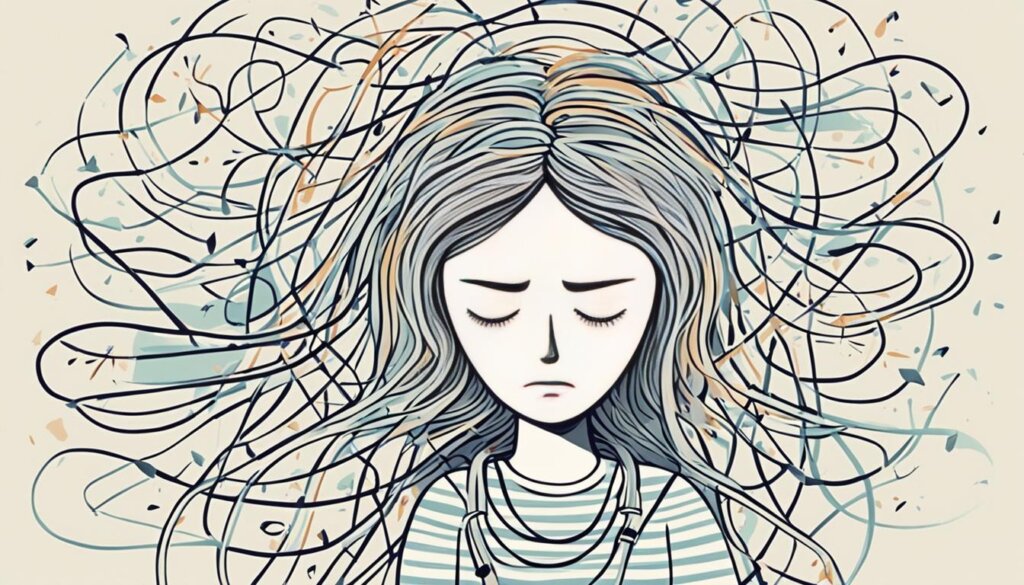
“Mental fatigue can hinder error detection and correction, potentially posing risks in safety-sensitive jobs like driving or operating machinery.”
Fatigue: When to Seek Medical Attention
Feeling tired is normal, but it can also mean you need to see a doctor. If you’re always tired and can’t figure out why, talk to your doctor.
You should see your doctor if you notice any of these:
- Unexplained weight loss
- Increased sensitivity to colder temperatures
- Difficulty falling or staying asleep on a regular basis
- Symptoms of depression or anxiety
If you’ve tried fixing your sleep, eating, and activity level but still feel tired, see a doctor. They can find out why you’re tired and help you feel better.
Go to the hospital right away if you suddenly feel very tired and have chest pain, trouble breathing, an odd heartbeat, or if you think about harming yourself or others. These signs could mean you have a serious health issue that needs quick attention.
Your health is the most important thing. Don’t wait to talk to your doctor if you’re always tired or it’s really bad. They can help you find out why and how to feel better.
Diagnosing the Cause of Fatigue
Finding out why you’re tired is key to getting better. Your doctor will start by looking at your medical history and symptom evaluation. This helps them understand your tiredness better.
Medical History and Symptom Evaluation
Your doctor will ask you about your tiredness. They want to know when it started and how it changes. They’ll also ask about your health, medicines, sleep, activity, and stress.
Laboratory Tests and Diagnostic Procedures
After looking at your history, your doctor might do some tests. These include blood tests for things like anemia or thyroid issues. They might also use X-rays or MRI scans to check for physical problems.
By looking at your health history and doing tests, your doctor can find out why you’re tired. Then, they can make a plan to help you feel better and more energetic.

“Accurately diagnosing the cause of fatigue is the first step towards effective treatment and management.”
Treating Fatigue
If you’re struggling with constant tiredness, your doctor will look at the cause. They will focus on treating the condition if they find one. Many illnesses like diabetes, heart disease, and sleep apnea can cause tiredness. Some medicines can also make you feel tired.
Addressing Underlying Conditions
Your doctor might suggest treatments like medicine or therapy for the root cause of your tiredness. This could mean managing a long-term illness, fixing nutritional gaps, or treating sleep problems.
Lifestyle Modifications
If your tiredness comes from your daily life, your doctor might recommend changes to help you feel better. These could be:
- Increasing physical activity. Exercise can make you feel more energetic and improve your health. Yoga is great for boosting energy too.
- Improving sleep quality. Good sleep is key to fighting tiredness. Healthy sleep habits, like setting a regular sleep schedule, can help your body stay in rhythm.
- Maintaining proper hydration. Not drinking enough water can make you feel tired. It’s important to drink water all day.
- Eating a nutrient-rich diet. Eating well can keep your energy steady and stop blood sugar levels from going up and down.
- Managing stress. Stress can drain you out. Finding ways to deal with stress, like counseling or relaxation, can help you feel more energetic.
By treating any underlying issues and changing your lifestyle, you can fight your tiredness and feel better.
Fatigue and Hydration
Drinking enough water is key to fighting fatigue. Not drinking enough can make you feel tired and weak. It can also make your heart work too hard, leading to more fatigue.
Not drinking enough water can also make your muscles weak and cause cramps. This makes feeling tired even worse.
Drinking the right amount of water is good for your health and how well you perform. Even a little dehydration can hurt your brain and body functions. Older people and kids are more likely to feel tired from not drinking enough water.
To fight fatigue, drink plenty of fluids every day. Adults should aim for 2.7 to 3.7 liters of water or 91 to 125 ounces of fluids. Checking your urine color and how often you go can tell if you’re drinking enough. Pale yellow urine means you’re doing well.
Other drinks like fruits, veggies, soups, and tea also help you stay hydrated. If you’re really tired from not drinking enough water, DripDrop ORS can help. It has the right mix of electrolytes and vitamins and minerals.
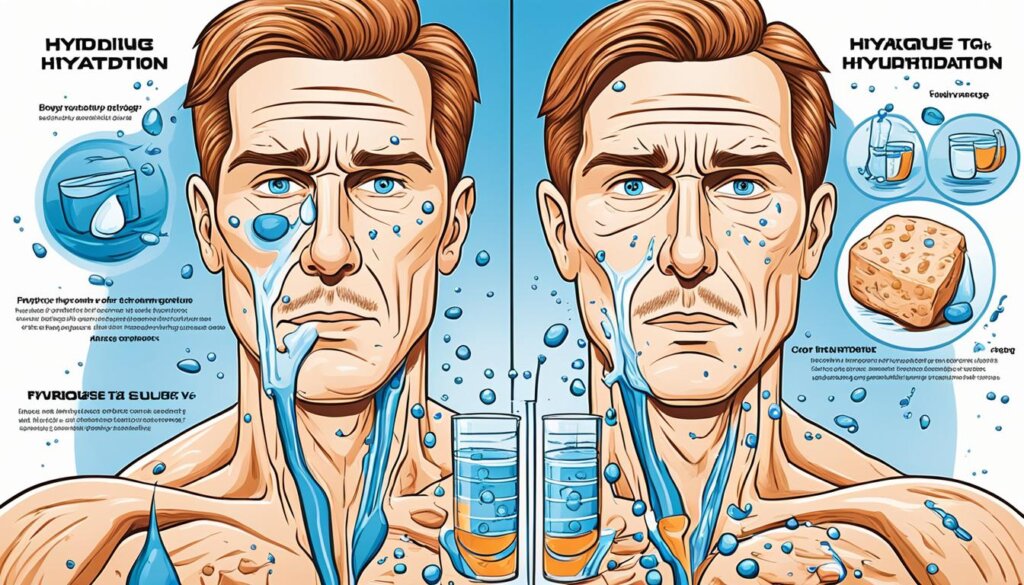
Drinking enough water helps fight fatigue and keeps you feeling good. Listen to your body and drink more if your urine is dark or you’re not going to the bathroom often.
Fatigue and Exercise
Staying active can help fight fatigue. Many think exercise makes us tired, but it’s more complex. Exercise and fatigue affect each other in a circle. Regular, moderate exercise can increase energy and make us feel better.
Exercise boosts heart health and muscle strength. It’s good to eat carbs, proteins, and fats in the right amounts. Drinking enough water is also key, especially when you’re active.
Finding the right balance is important. Too much exercise can make us tired. Our bodies use up energy and feel fatigued. Mixing different types of workouts helps improve fitness and rest is vital for recovery.
The goal is to balance exercise and fatigue. Regular, moderate activity can increase energy. But too much can be bad. By eating right, staying hydrated, and resting, we can use exercise to fight fatigue and get healthier.
Fatigue and Sleep
Getting good sleep is key to fighting fatigue. Stick to a regular sleep schedule and make your bedroom sleep-friendly. Also, fix any sleep issues like insomnia or sleep apnea to lessen fatigue.
Improving Sleep Quality
Here are ways to better your sleep and fight fatigue:
- Keep a regular sleep schedule, even on weekends, to keep your body clock in check.
- Do relaxing things before bed, like reading or a warm bath, to tell your body it’s time to sleep.
- Make your bedroom cool, dark, and quiet for better sleep.
- Reduce screen time and blue light before bed to help your sleep cycle.
Managing Sleep Disorders
If you think a sleep issue is making you tired, see a doctor. Sleep problems that can make you feel exhausted include:
- Sleep apnea: This stops your breathing at night, making you feel tired even if you’re in bed a lot.
- Insomnia: This is when you have trouble falling or staying asleep, leading to ongoing tiredness.
- Restless Legs Syndrome (RLS): This makes you want to move your legs a lot, which can disrupt sleep and make you tired.
Working with a healthcare pro to fix these sleep issues can help you sleep better and fight fatigue.
“Getting enough high-quality sleep is essential for managing fatigue. Addressing any underlying sleep disorders is also important.”
Fatigue and Stress Management
Chronic stress and fatigue often go together. Long-term stress can make you feel tired and drained. This makes it hard to stay energetic and productive all day. But, you can fight fatigue by using good stress management methods.
Doing relaxing things like deep breathing, meditation, or yoga helps. These activities calm your mind and lower stress. Being mindful also helps you stay focused and not worry too much.
Managing your time well is key to fighting stress and fatigue. Set priorities, have realistic goals, and learn to say no to too much. Doing things you enjoy, like hobbies or hanging out with friends, can also boost your mood and energy.
Look at things that might be making you stressed and tired, like bad sleep, eating poorly, or not moving enough. Exercise, eating well, and sleeping well can help you handle stress better.
The Headspace app has meditations and courses to help you with stress and well-being. Using these tools daily can help you deal with stress and fatigue. You’ll feel more energetic, focused, and resilient.
“Stress can’t be avoided, but it can be managed. By taking control of your stress, you can reduce its negative impact and improve your overall health and well-being.”
Stress Management Strategies | Benefits |
|---|---|
Relaxation exercises (e.g., deep breathing, meditation, yoga) | Calms the mind, reduces physiological stress responses, promotes inner peace |
Time management (e.g., prioritizing tasks, setting realistic goals, delegating) | Alleviates feelings of being overwhelmed, reduces fatigue |
Engaging in joyful activities (e.g., hobbies, social interactions) | Positively impacts mental health and energy levels |
Addressing underlying factors (e.g., poor sleep, unhealthy diet, sedentary lifestyle) | Helps manage stress and alleviate fatigue |
Using stress management tools (e.g., Headspace app) | Provides resources and guidance for managing stress and improving well-being |
Using these strategies every day can help you manage stress and reduce fatigue. This leads to better physical and mental health.
Dietary Interventions for Fatigue
Eating right is key to fighting fatigue. Adding foods full of nutrients to your meals gives your body what it needs to work well. This can help you feel less tired. Some supplements can also fill in the gaps in your diet that cause fatigue.
Nutrient-Rich Foods
Eating a balanced diet rich in plants is great for fighting fatigue. Fruits, vegetables, whole grains, lean proteins, and healthy fats are key for a diet that fights tiredness. These foods should be part of your meals to help you stay energized.
Some foods are packed with special nutrients. Red vegetables have antioxidants and yellow vegetables give you vitamins A, C, and B6. Trying different foods to see what helps you feel best can be a good idea.
Supplements and Fatigue
Some supplements can also help with fatigue. Iron, B vitamins, and CoQ10 are examples of these supplements. But, always talk to a doctor before taking any supplements to make sure they’re safe and right for you.
By eating foods full of nutrients and using supplements, you can help manage your fatigue. This supports your overall health and well-being.

“Eating a balanced, nutrient-rich diet can help combat fatigue and provide the essential nutrients your body needs to function optimally.” – Nutrition Specialist
Fatigue and Medication
Many medicines, both over-the-counter and prescription, can make you feel tired. Some medicines, like allergy treatments, antidepressants, and blood pressure drugs, can cause tiredness. Others, such as opioid pain relievers and seizure drugs, can also make you feel very tired.
If you think your medicine is making you tired, talk to your doctor. They might change your dosage or suggest a different medicine to help you feel better. But don’t stop taking your medicine without a doctor’s advice, as it could be dangerous.
Your doctor might also suggest ways to fight fatigue, like exercising or drinking caffeine. But always talk to your doctor before trying new medicines to stay awake.
Sometimes, feeling tired can be normal, like after working out or feeling stressed. But if it’s always there and is really bad, it could mean something serious like myalgic encephalomyelitis/chronic fatigue syndrome (ME/CFS). If that’s the case, you’ll need to see a doctor for help.
Understanding how medicines can make you tired and working with your doctor can help you feel better.
Medication Type | Potential Fatigue Side Effects |
|---|---|
Allergy Medications (Antihistamines) | Drowsiness, Fatigue |
Antidepressants | Fatigue, Drowsiness |
Anxiety Medications | Fatigue, Drowsiness |
Blood Pressure Medications | Fatigue |
Cancer Treatment Drugs | Fatigue |
Gut Medications | Fatigue |
Muscle Relaxants | Fatigue, Drowsiness |
Opioid Pain Medications | Fatigue, Drowsiness |
Seizure/Epilepsy Medications | Fatigue |
Conclusion
Fatigue affects many people and can change how you feel and live. Knowing what causes it helps you fight and manage it. Women often feel more tired than men, and those in poverty or with health issues feel it more.
It’s important to find out why you’re tired. Things like staying up late, drinking too much caffeine or alcohol, eating poorly, and not exercising can make you tired. Chronic fatigue syndrome is when you’re tired for over 4 months with no clear reason, and chronic tiredness is being tired for over 6 months. Working with your doctor and making healthy changes can help you feel better.
Studies have looked into how common and serious fatigue is in different places. They’ve looked at mistakes in diagnosing fatigue, how doctors in training deal with it, and the big health issue it is in Europe. By tackling fatigue from all angles, you can get better overall health and happiness.
FAQ
What is fatigue?
Fatigue means feeling very tired or lacking energy. It’s different from just feeling sleepy. When you’re fatigued, you don’t have the motivation or energy to do things.
What are the causes of fatigue?
Fatigue can come from many things, like being active or not moving enough. It can also come from not sleeping well, being overweight, or feeling stressed. Other causes include grief, some medicines, drinking alcohol, and eating poorly.
Some medical conditions, like anemia or arthritis, can make you feel tired. So can mental health issues like depression or anxiety.
When should I see a doctor for fatigue?
See a doctor if you’re tired and can’t figure out why. If you have a high temperature, lose weight without trying, or feel cold easily. Trouble sleeping or feeling depressed are also reasons to visit a doctor.
If you’ve tried to fix the problem but it lasts over two weeks, see a doctor.
How is the cause of fatigue diagnosed?
Doctors will ask you about your fatigue, like when it started and how it changes. They want to know about other symptoms, health conditions, stress, and medicines you take.
They might do blood or urine tests to find the cause of your fatigue.
How is fatigue treated?
Treatment depends on what’s causing your fatigue. If it’s a health issue, treating that is key. For lifestyle-related fatigue, your doctor might suggest better eating, more exercise, and better sleep.
Drinking enough water, managing stress, and checking medicine’s side effects can also help.

